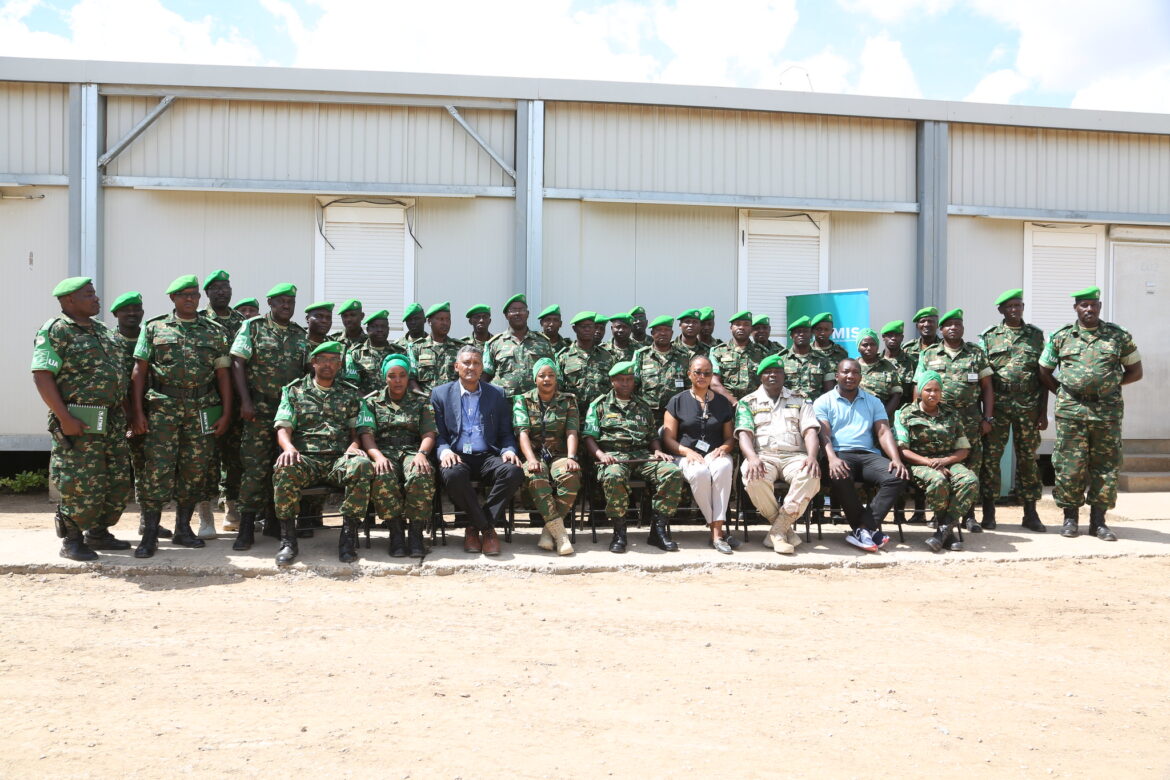Jowhar, 15 September 2024 – Thirty-eight Burundi military officers serving with the African Union Transition Mission in Somalia (ATMIS) have completed a comprehensive training on civilian protection and complying with human rights and International Humanitarian Law.
The five-day training conducted in Jowhar, north of Mogadishu, was jointly organised by the ATMIS Protection, Human Rights and Gender (PHRG) Cluster and the Civilian Sector Coordination Unit. The objective was to enhance the capacity of officers in protecting vulnerable groups, including women and children, during combat operations.
“When we have operations, it’s important that our troops protect civilians and their human rights and of course respect the principles of International Humanitarian Law,” ATMIS Senior Protection and Human Rights Officer, Ms. Gloria Jaase, said.
“That way, we will achieve our goals for compliance and accountability to International Humanitarian Law, International Human Rights Law and protection of civilian frameworks.”
Ms. Jaase called on ATMIS troops to maintain the highest standards of conduct and discipline while protecting civilians.
ATMIS Burundi contingent commander, Col. Oscar Hatungimana, stressed the importance of capacity building of ATMIS personnel to protect local communities and supporting Somalia’s stabilisation.
“The training will have a positive impact on the execution of our mandate. It is crucial for every peacekeeper to engage in continuous training to ensure sound decision-making,” said Col. Hatungimana.
ATMIS Civil Affairs Officer, Fadil Karar, said the officers have acquired necessary skills and knowledge to protect and promote human rights in their Area of Responsibility (AoR).
“Our troops are also involved in mentoring the SNA and work jointly to enhance the capacity of Somali Security Forces. Additionally, we equip ATMIS troops with information and knowledge in mentoring their SNA counterparts,” added Fadil.
The training covered key areas such as International Humanitarian Law (IHL), International Human Rights Law (IHRL) and Protection of Civilians. Other topics included prevention of sexual exploitation and abuse, Civilian Casualty Tracking, Analysis and Response Cell (CCTARC) and standard operating procedures while handling detainees.
Participants thanked ATMIS for the training and requested additional capacity building workshops.
“The training included a thorough review of the Standard Operating Procedures (SOPs), and all various protocols by the African Union. It has enhanced our ability to maintain discipline during peace-support operations,” said Maj. Clément Cimana.
Another participant, Lt. Estella Nshimirimana, said: “We examined the integration of gender considerations and our responsibilities as female soldiers.”
The training is part of ATMIS’ ongoing efforts to ensure compliance to civilian protection, Human Rights and International Humanitarian Laws.
























